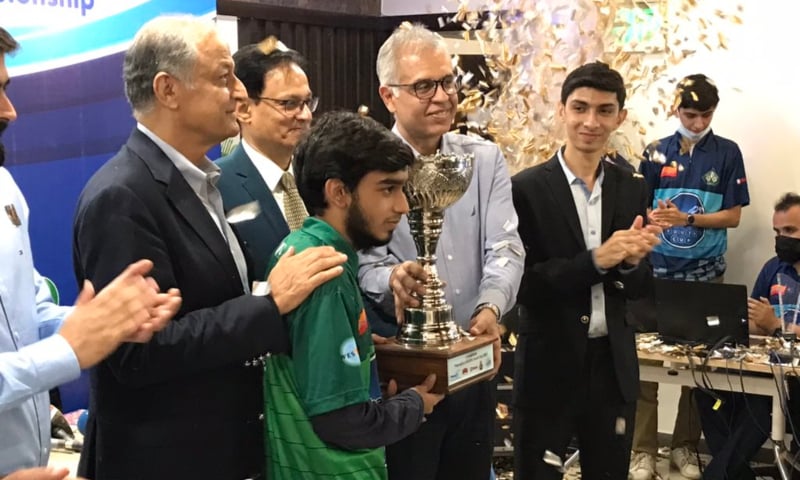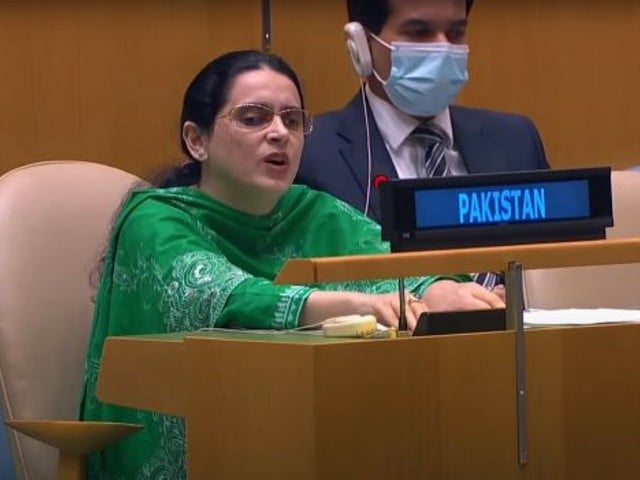Remembering Ardeshir Cowasjee
Like his hero Jinnah, Cowasjee set the bar high, perhaps a little too high for most of his countrymen.
Usman Hayat
His criticism of the powerful was fearless and irreverent, and his readers loved it. Zulfiqar Bhutto was “megalomaniac”, Benazir Bhutto and Nawaz Sharif “corrupt to the core” and Altaf Hussain “the Pir of Edgware”. And these are only a sample of the words he used to describe them. On camera, he would go even further in ridiculing those who ruled Pakistan. He offered a very different take on the rulers compared to the biographers and other commentators.
It has been nine years since the death of death of Ardeshir Cowasjee on November 24, 2012 but his DAWN columns and acts of philanthropy live on.
The person he praised plentifully and consistently was Muhammad Ali Jinnah, who also happened to be a family friend: “He was
the sole statesman this country has had. Those who followed were small men, narrow of thought... Within a quarter of a century, half of Jinnah’s Pakistan was lost... It is now an overpopulated, illiterate, bankrupt country…”
Born in 1926, Cowasjee lived 86 years, which enabled him to observe the birth of Pakistan and its sustained decay. Someone wanting to go through the events and mood in Pakistan’s chaotic politics would do well to read
Vintage Cowasjee: A Selection of Writings From Dawn, 1984-2011 or go through his
archived columns. What you read would run chills down your spine because you will find that history is repeating itself in Pakistan at short intervals. He will make you realise that there are far too many characters and events in Pakistan’s history that seem tragically similar and it is foolish to hope for a different outcome from the same experiment.
Cowasjee was a Zoroastrian or Parsi as they are known in Pakistan, a tiny and dwindling Karachi-centered minority of what now likely comprises barely a thousand people. He was small in size but towered above his fellow writers in religiously conservative Pakistan. He was erudite but stayed glued to reality. His ideas were simple and far from academic: law and order and education were his long running priorities for Pakistan.
In Persian, one meaning of the name Ardeshir is
courageous — his name was befitting. Telling it like it is, he shunned hypocrisy, which probably surpasses cricket as the country’s most popular sport.
His columns were in English, which greatly reduced his reach in a country where many struggle to read and write even in the national language, Urdu. But he was a widely followed writer among the educated, including the judiciary, the bureaucracy and Pakistanis abroad.
His readers waited for his weekly Sunday column in Dawn where they received a reality check amidst the latest wave of political propaganda. The titles he gave to his columns were often interesting and funny and his followers couldn't wait to read them: “
Zero plus zero equals zero”, “
Allah meherban tau gadha pehlwan", and “
Our dependent judiciary”.
It wasn’t just the specific opinions or details in his columns, it was the themes and style that ran through them that captivated his readers year after year. That there could be a bold writer like him here raised international curiosity and stories covering him appeared in
The Hindu,
Al Jazeera,
Los Angeles Times and
NPR. He was highly tolerant of difference of opinion and repeatedly said that his columns were only his views and he understands that others may have a different opinion.
Cowasjee was the antithesis of those he criticised. If their life was about greed and gaming, his was about philanthropy and public interest. Coming from a wealthy family, he made it known that he wrote for the love of it and the income he earned from his writings would not even buy him a necktie. He was the self-appointed guardian of parks and trees in Karachi. Through the Cowasjee Foundation, he funded the education of many students in Karachi.
Today, there are parks and open spaces in Karachi that exist because of him. There are also some illegal buildings that do not exist because of him. The Institute of Business Administration has established
the Ardeshir Cowasjee Centre for Writing to enable students to get help in their writing projects from their seniors.
A thankful Karachite remembers Cowasjee
Zulfiqar Bhutto, once a friend, threw him in jail for a few weeks in 1976. That didn’t turn out well for Bhutto and the others who held positions of power in Pakistan. After writing letters to the editor, Cowasjee became a columnist for Dawn and ruthlessly assailed politicians, generals, judges, and mafiosos for years to come.
Cowasjee wasn’t without his weaknesses. It wasn't easy to have a conversation with him as many of his video interviews show. He would lose patience when he felt that the interviewer was not being intelligent enough. He came across as an eccentric who did not care to play nice. I once had the chance to listen to him speak to a small gathering in Karachi in 1999. It felt like a bare knuckle boxing match, him against everyone else, where he rubbished all the excuses we could make for being unable to change the sorry state of affairs in the country.
TCF School, Cowasjee campus, Karachi. The Cowasjee family trust donated funds for one of TCF's largest campuses.
In his English interviews, he would do well. One of
his interviews recorded during the Musharraf era comes to mind, where he was impeccably dressed, wearing his gentle smile, softly answering hard questions, and expressing his frustration with the tried and tested politicians.
His Urdu interviews were a different matter. His Urdu was weak. He spoke with the same clarity of mind but relied on offensive street slang as
saala,
charya, and
khuchar, which would make the politically-correct listeners shudder.
In
a comedy show, two famous artists, Anwar Masood, playing the interviewer, and the late Moeen Akhtar, playing Cowasjee, mock him for his eccentric behaviour and coarse use of language. One of the funniest parts here is when the interviewer tells Cowasjee that what he said doesn't quite qualify as an answer. Cowasjee retorts that what the interviewer asked wasn’t much of a question either. If you watch some of the actual interviews by Cowasjee, you would notice that the clip was not far from reality. But he valued a sense of humour and probably had a hearty laugh after seeing it.
Cowasjee surprised many of his readers when he allowed himself hope for reforms from the military ruler Musharraf, whom he called “the best of the worst”. It was difficult to understand why with his experience and clarity of mind he would fall for hope from yet another military ruler. One wonders if despite his avowed cynicism, deep down he couldn’t let go of his hopes for Pakistan returning to Jinnah’s vision. Thankfully, his hopes did not blur his vision. Whether it was the tragic case of Mukhtaran Mai or the missing persons, he showed no reluctance in raising his voice for the victims.
While he chose the high-risk path of speaking truth to power and ridiculing the powerful, his was an enviable life: wisdom, money, family, fame, and lovely pets, he seemed to have it all. His readers could only be thankful that despite writing a provocative column every Sunday, somehow, he survived to write the next one against all odds.
The opening lines from
a column in 2008 help understand the man and his writings: “Our moth-eaten Pakistan will hobble along, led as it always has been since 1948 by men endowed with mediocrity or men endowed with moral depravation, until, through God's infinite grace, it rights itself and follows the path envisaged by its Founder-Maker, Mohammad Ali Jinnah.”
Where he didn’t walk his talk was when advising others to leave Pakistan to find a better life. He stayed on in his home city Karachi till the end. Like his hero Jinnah, Cowasjee set the bar high, perhaps a little too high for most of his countrymen.
////
The writer is a former CEO of the Audit Oversight Board, Executive Director at the Securities and Exchange Commission and content director at CFA Institute (London). He tweets @Usman_Hayat


























